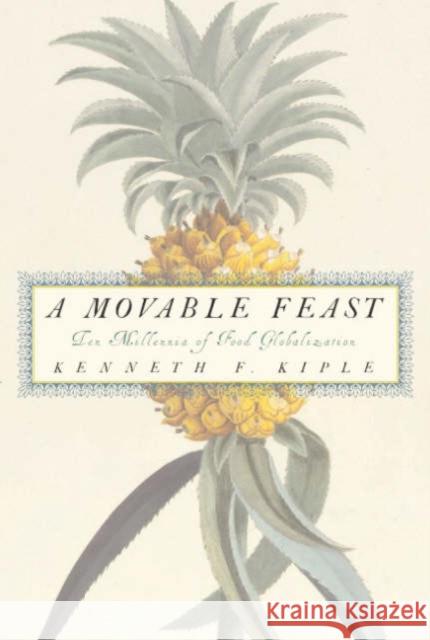A Movable Feast » książka
A Movable Feast
ISBN-13: 9780521793537 / Angielski / Twarda / 2007 / 386 str.
In the last twenty-five years alone, the range of fruits and vegetables, even grains, that is available at most local markets has changed dramatically. Over the last 10,000 years, that change is almost unimaginable. This groundbreaking new work, from the editor of the highly regarded Cambridge World History of Food, examines the exploding global palate. It begins with the transition from foraging to farming that got underway some 10,000 years ago in the Fertile Crescent, then examines subsequent transitions in Egypt, Africa south of the Sahara, China, southeast Asia, the Indus Valley Oceanic, Europe, and the Americas. It ends with chapters on genetically modified foods, the fast food industry, the nutritional ailments people have suffered from, famine, the obesity epidemic, and a look at the future on the food front. Food, at its most basic, fuels the human body. At its most refined, food has been elevated to a position of fine art. The path food has taken through history is a fairly straightforward one; the space which it occupies today could not be more fraught. This sweeping narrative covers both ends of the spectrum, reminding us to be grateful for and delighted in a grain of wheat, as well as making us aware of the many questions that remain unanswered about what lies ahead. Did you know. . .
- That beans were likely an agricultural mistake?
- That cheese making was originated in Iran over 6000 years ago?
- That pepper was once worth its weight in gold?
- That sugar is the world's best-selling food, surpassing even wheat?
- That Winston Churchill asserted, in 1942, that tea was more important to his troops than ammunition?
- That chili con carne is one of the earliest examples of food globalization?
- That, by 1880, virtually every major city in America had a Chinese restaurant?
- That white bread was once considered too nutritious?
Kenneth Kiple reveals these facts and more within A Movable Feast.











